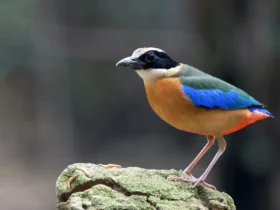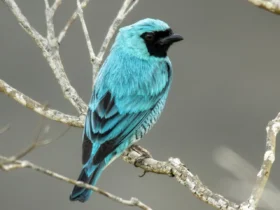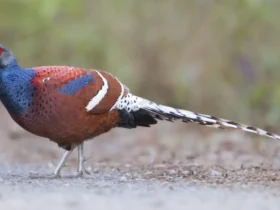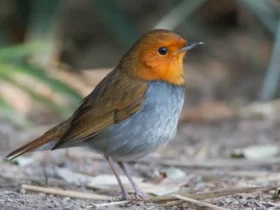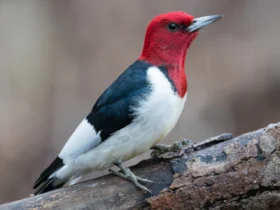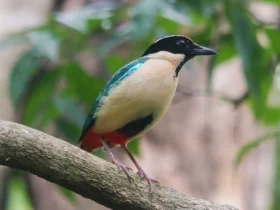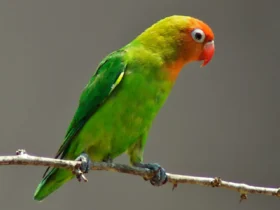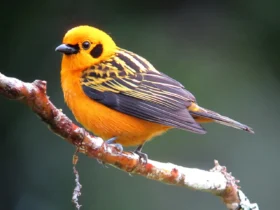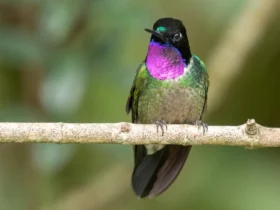Amidst the lush green canopies of tropical forests, a colorful and charismatic bird stands out with its vibrant plumage and distinctive call—the Black-collared Barbet. With its striking black and red collar and melodious song, this avian gem captivates the hearts of birdwatchers and nature enthusiasts. In this article, we will explore the fascinating world of the Black-collared Barbet, delving into its appearance, habitat, behavior, and the importance of conserving this remarkable species.
Black-collared Barbet images
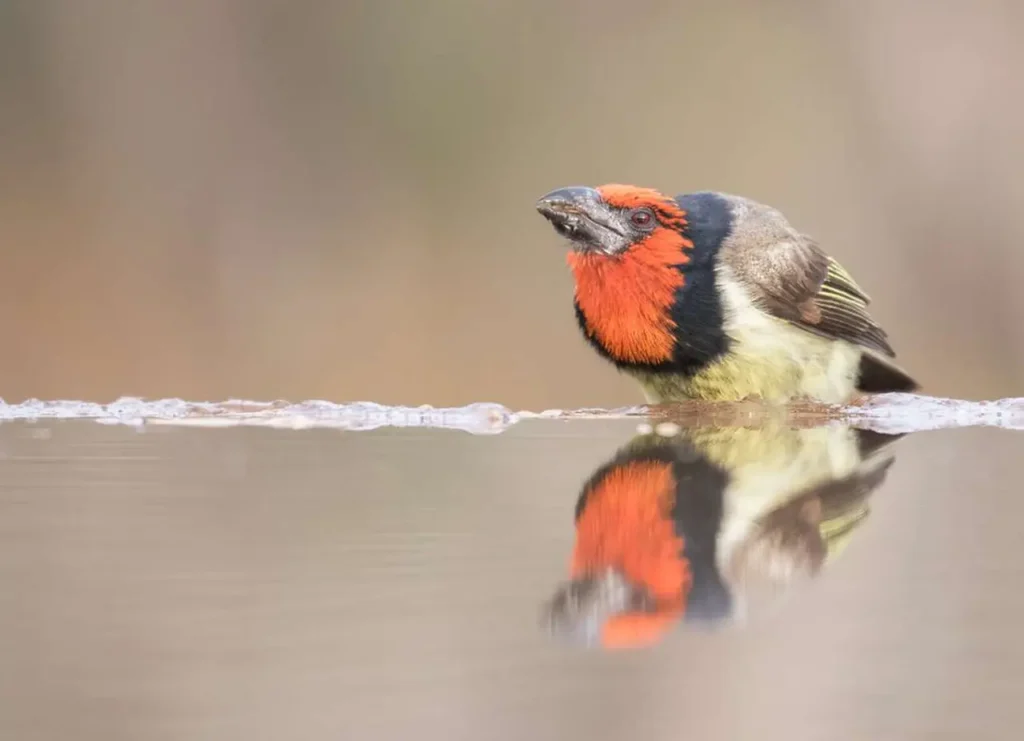
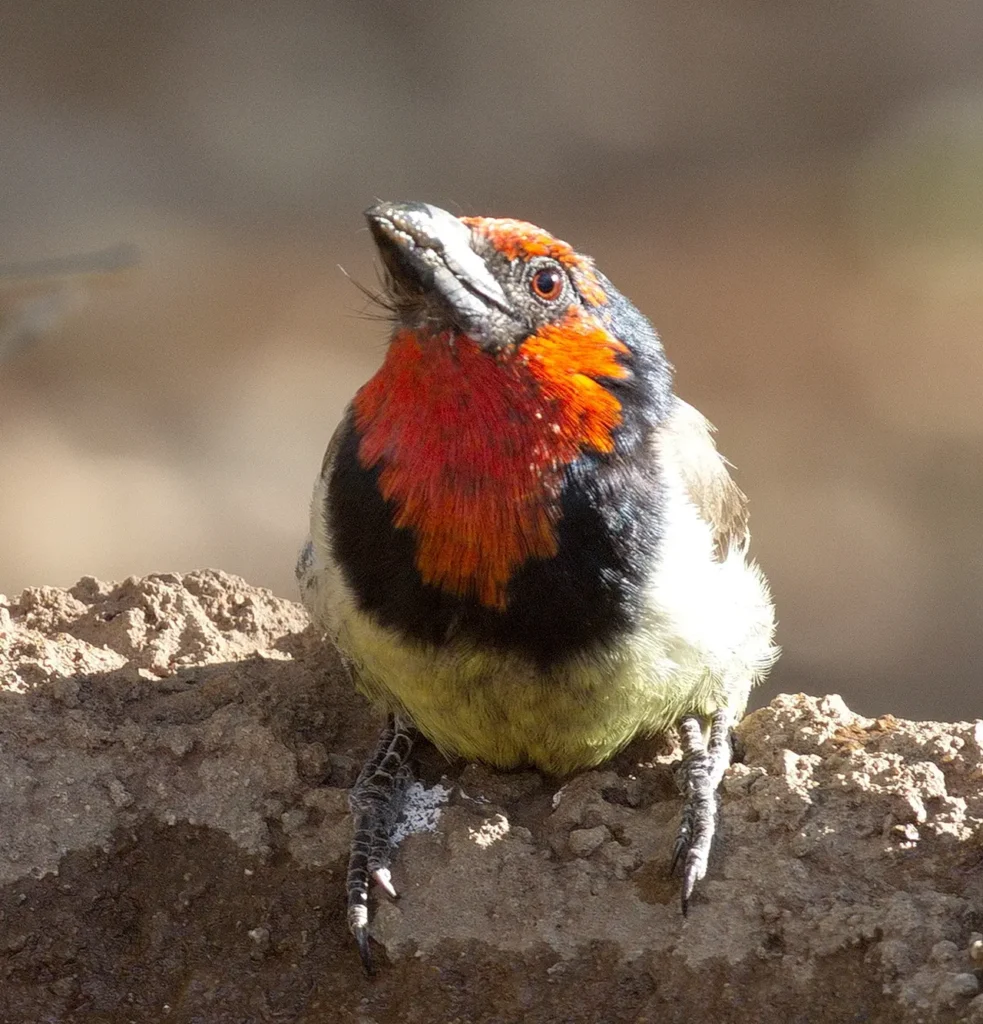
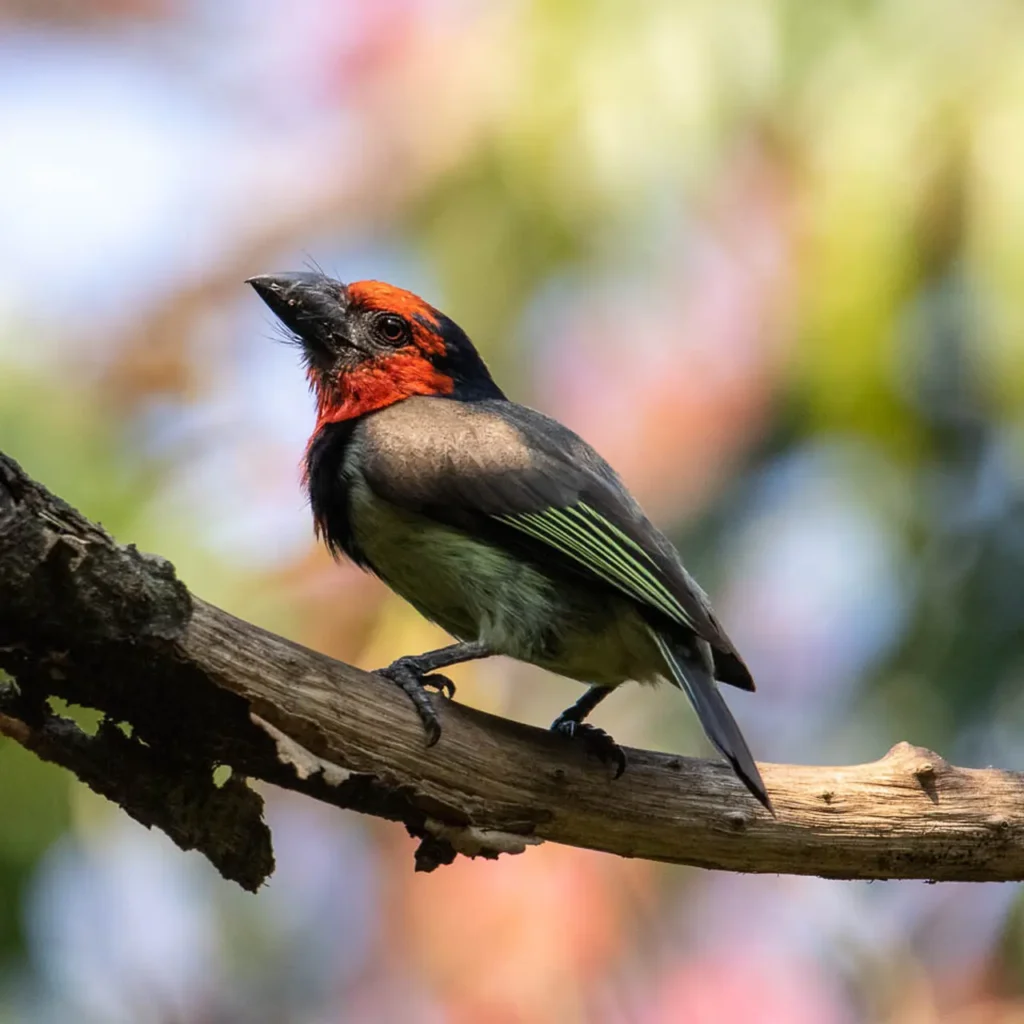
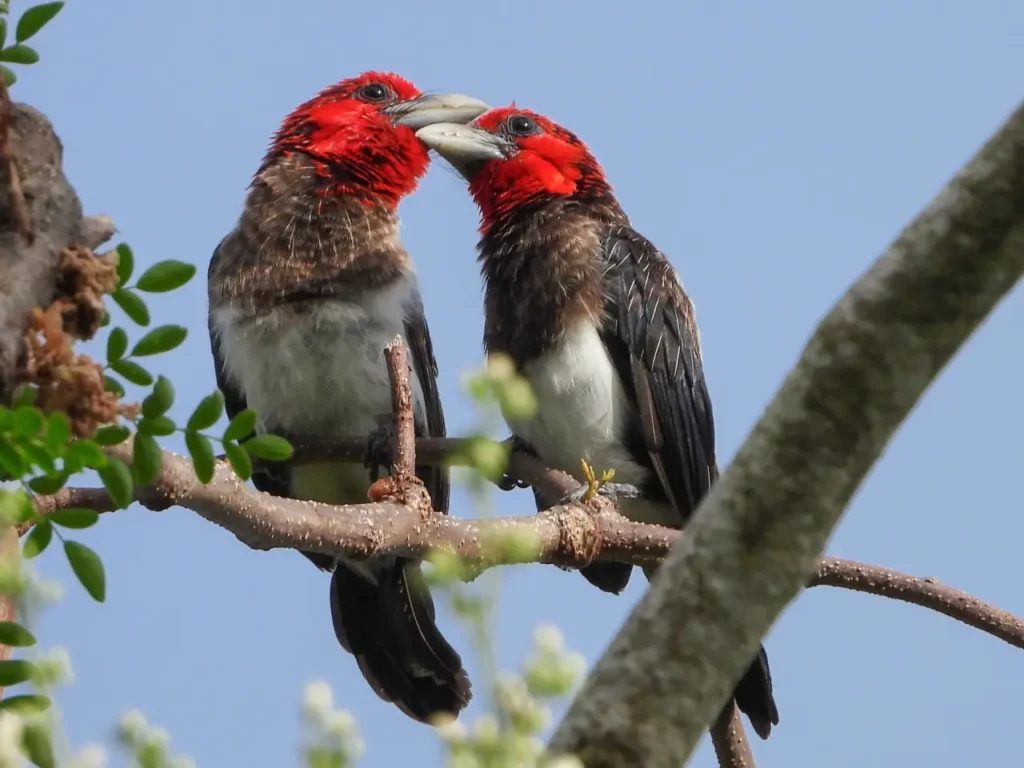
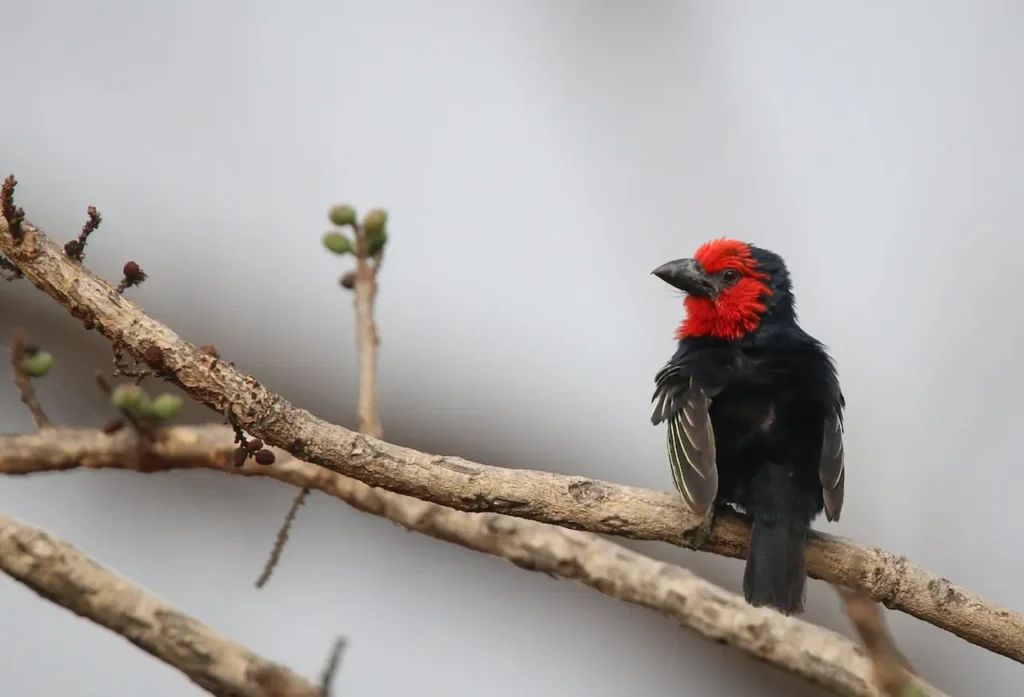
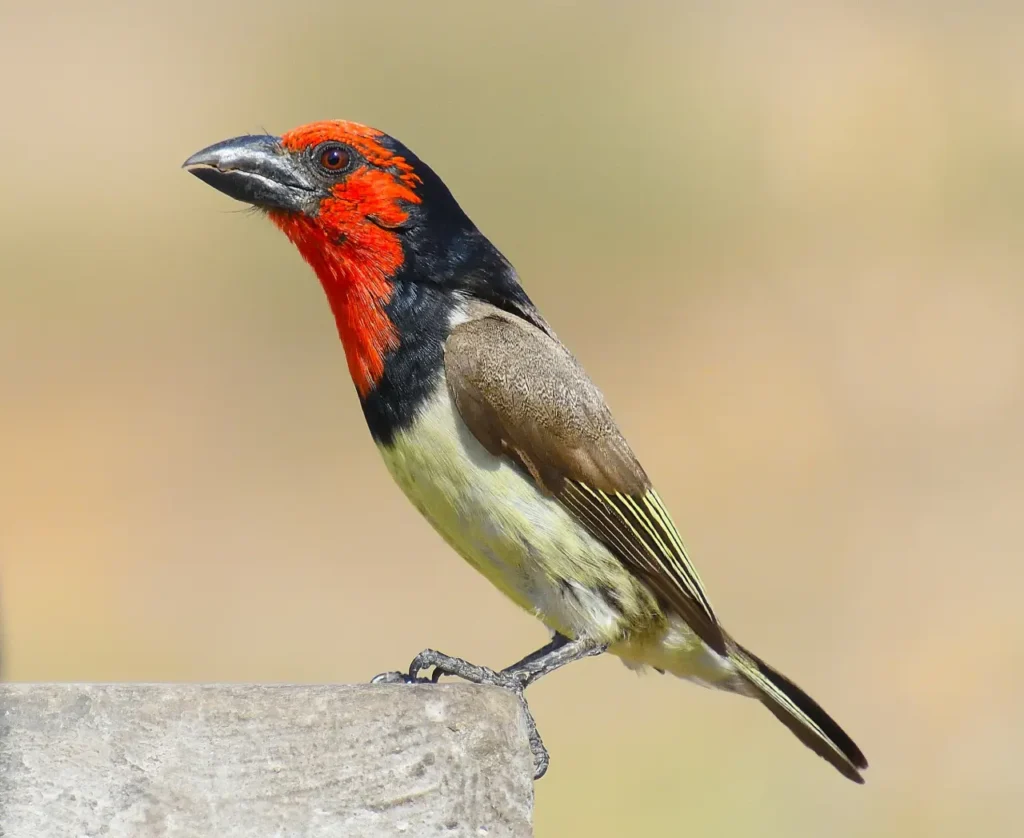
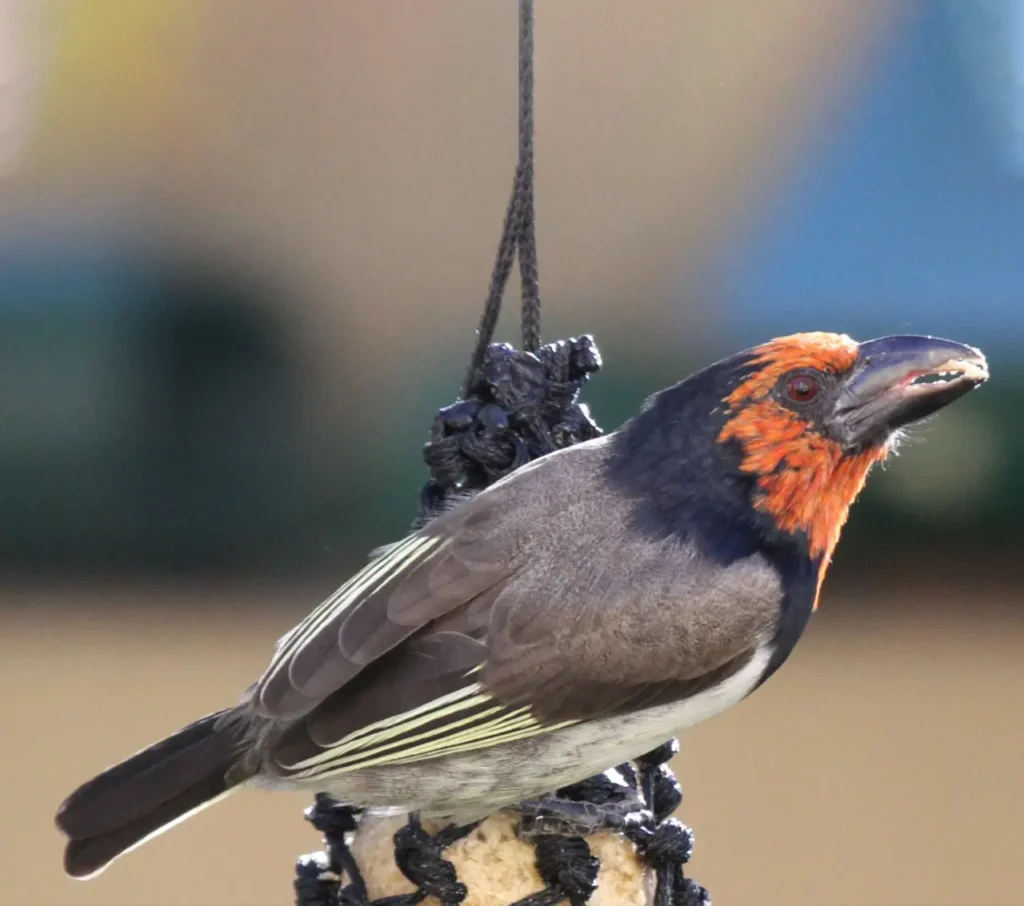
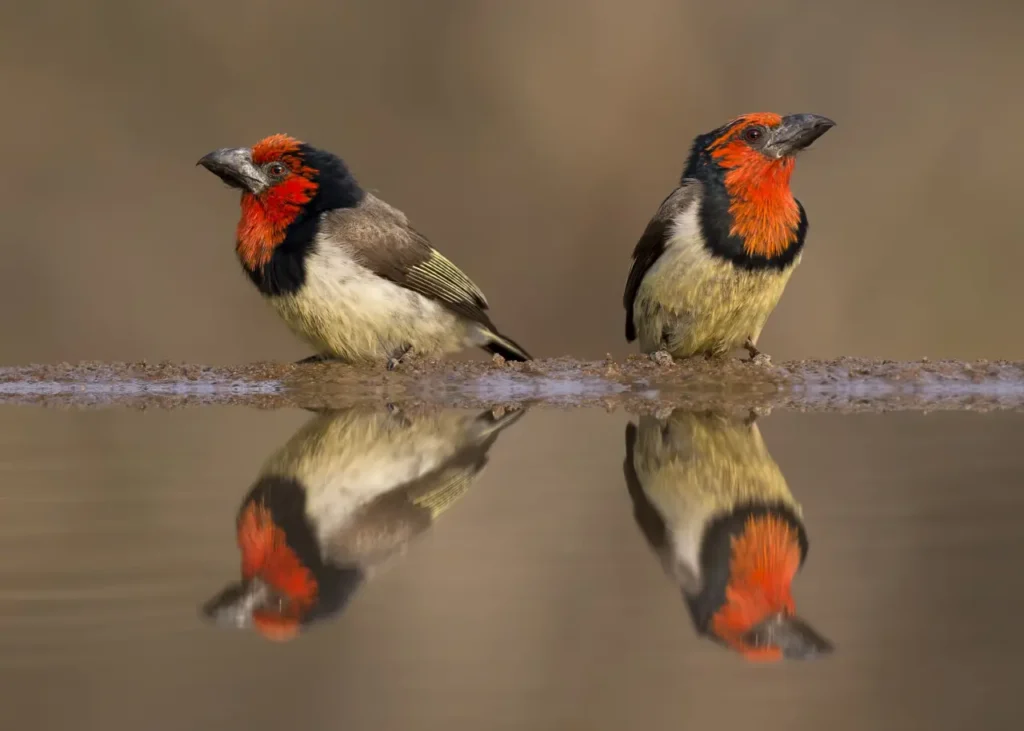
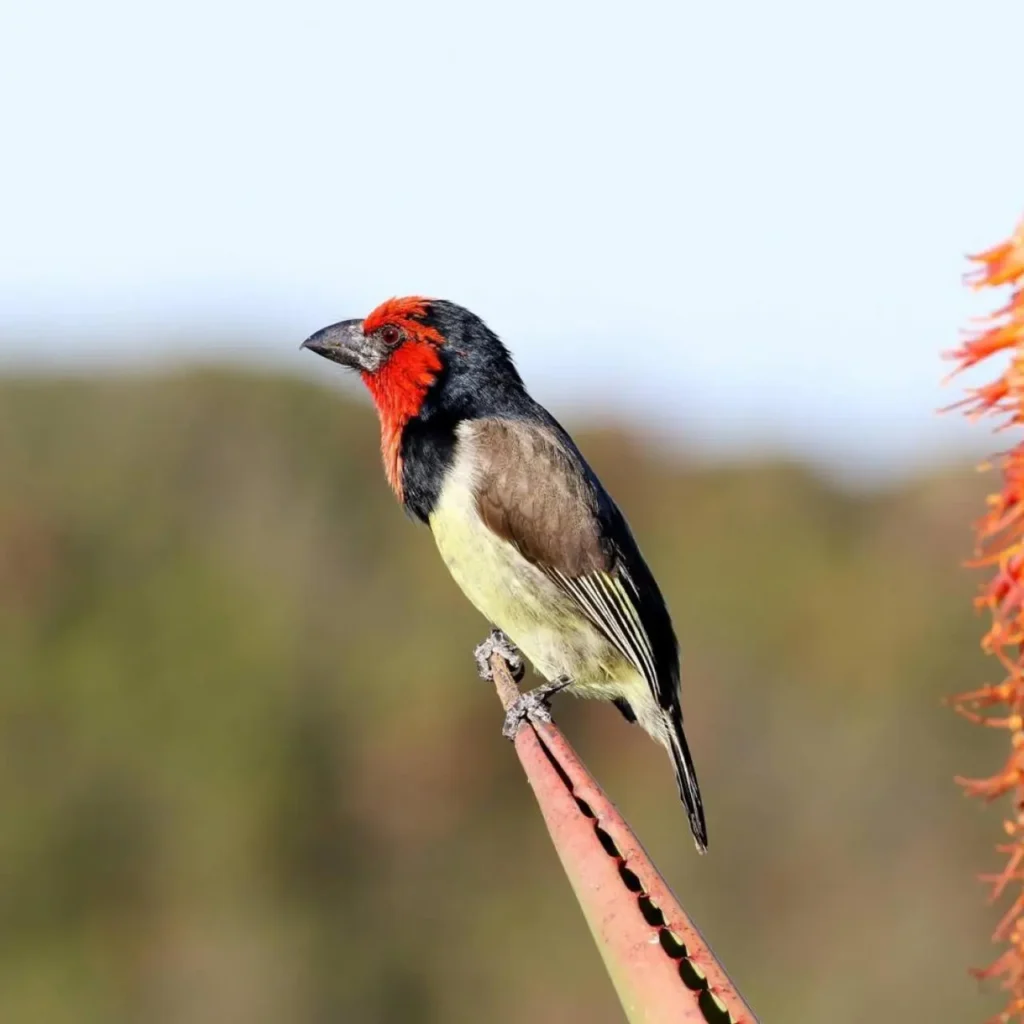
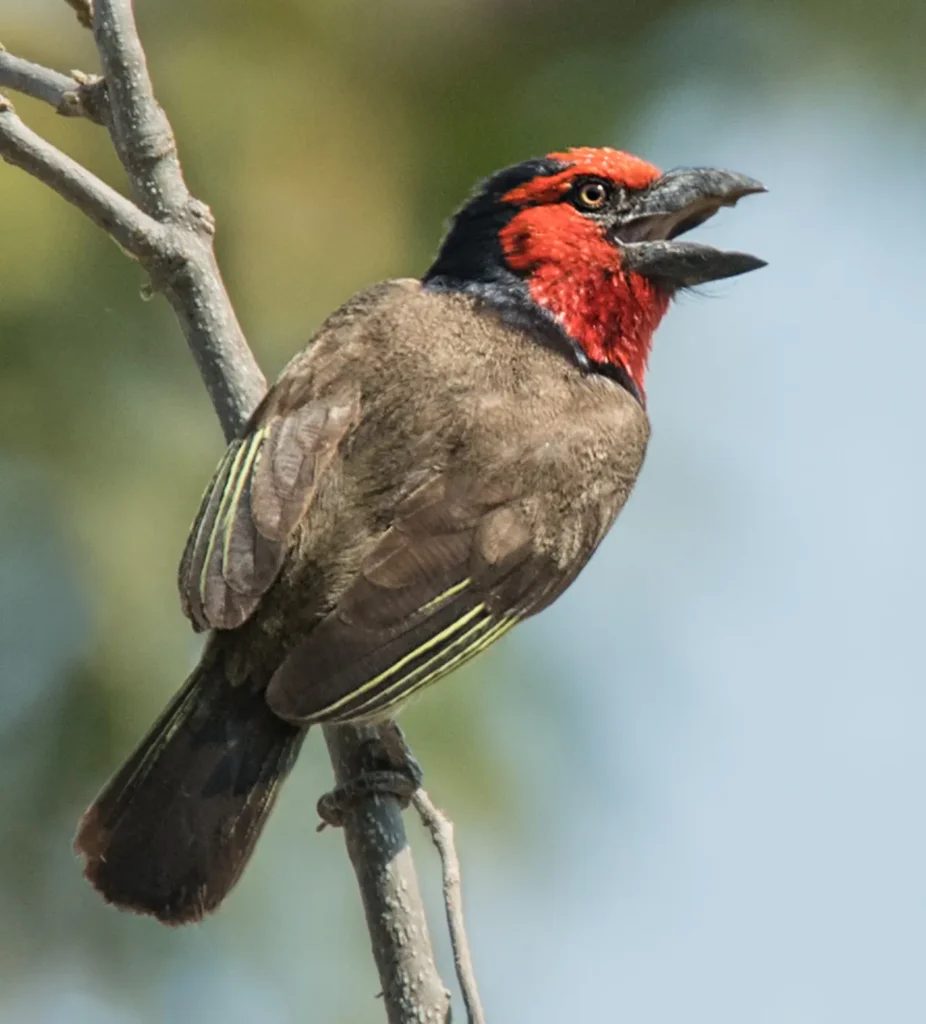
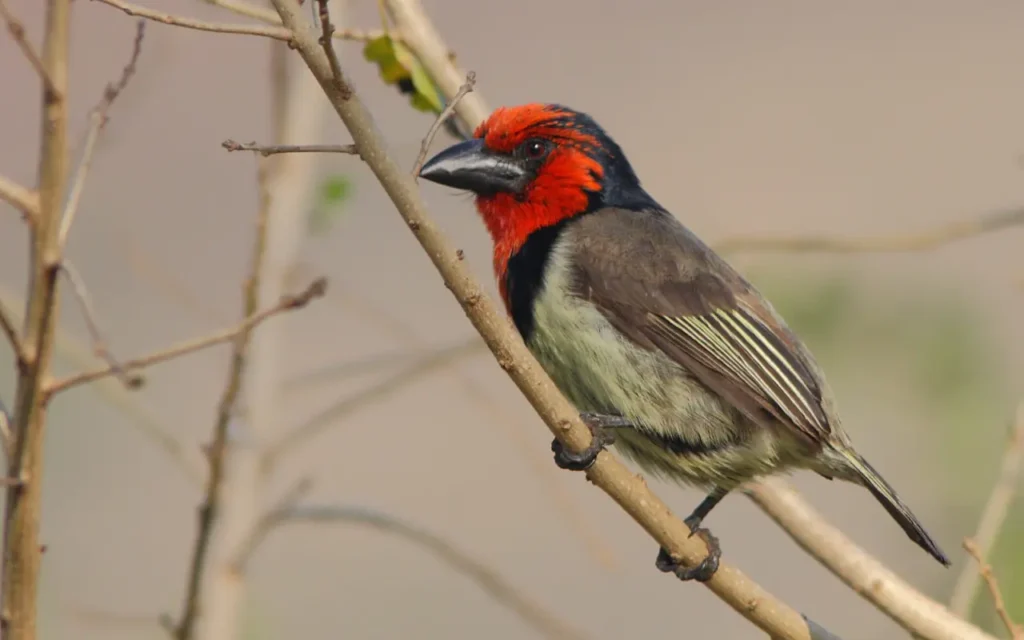
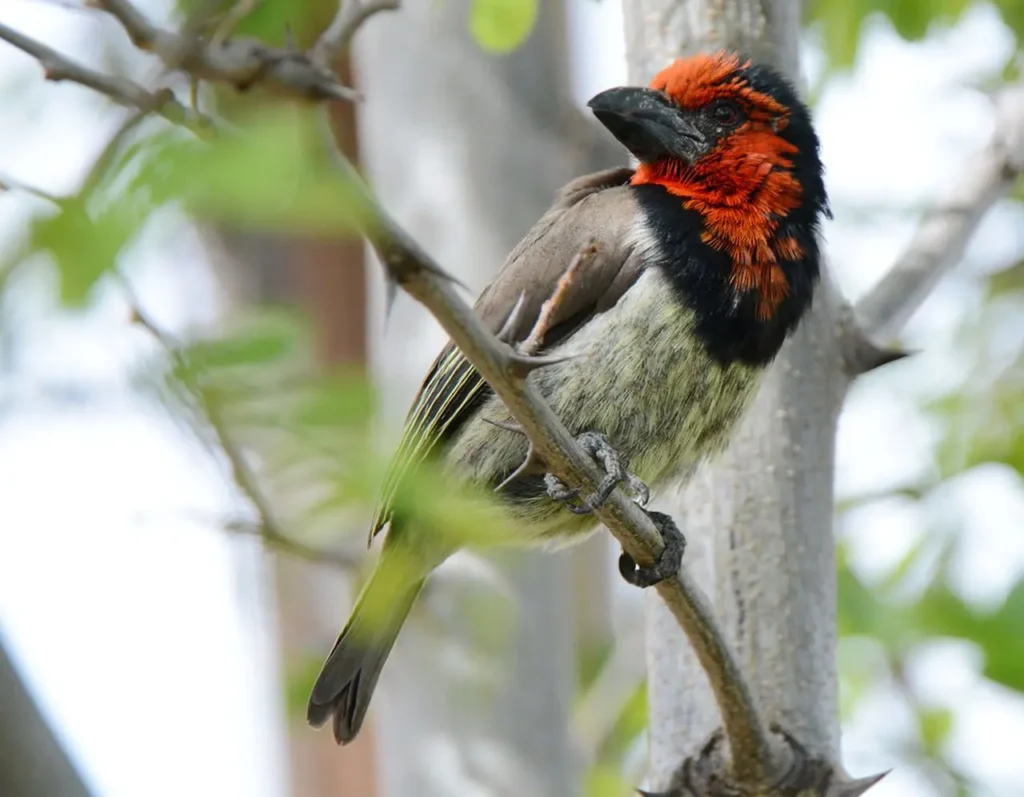
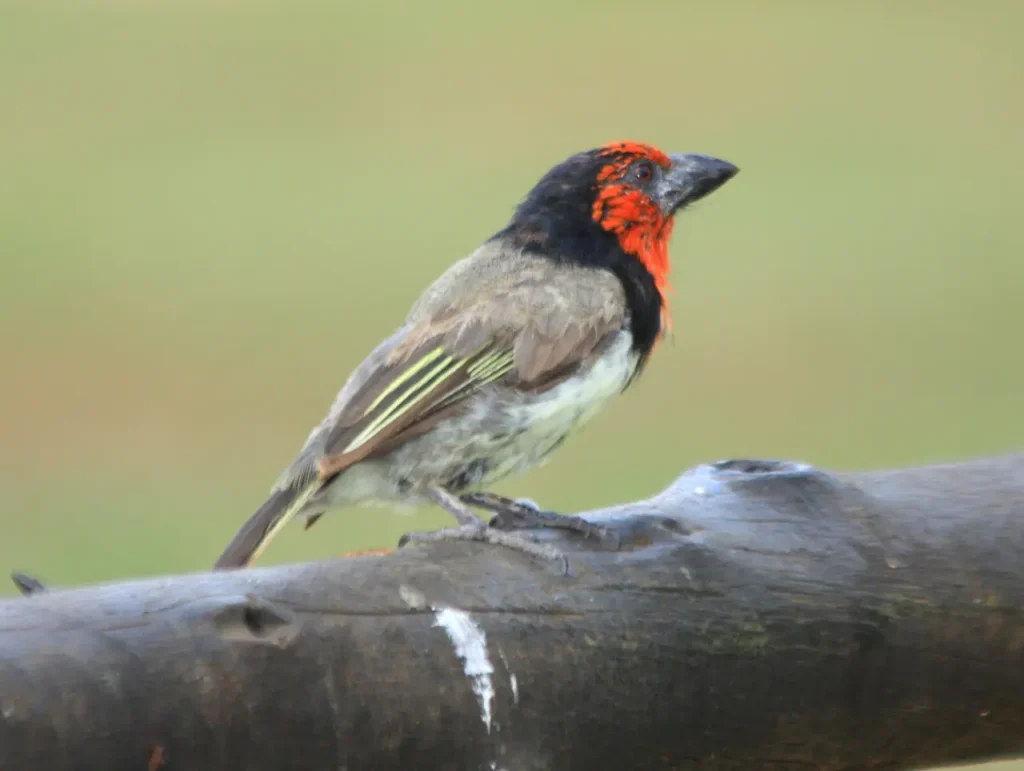
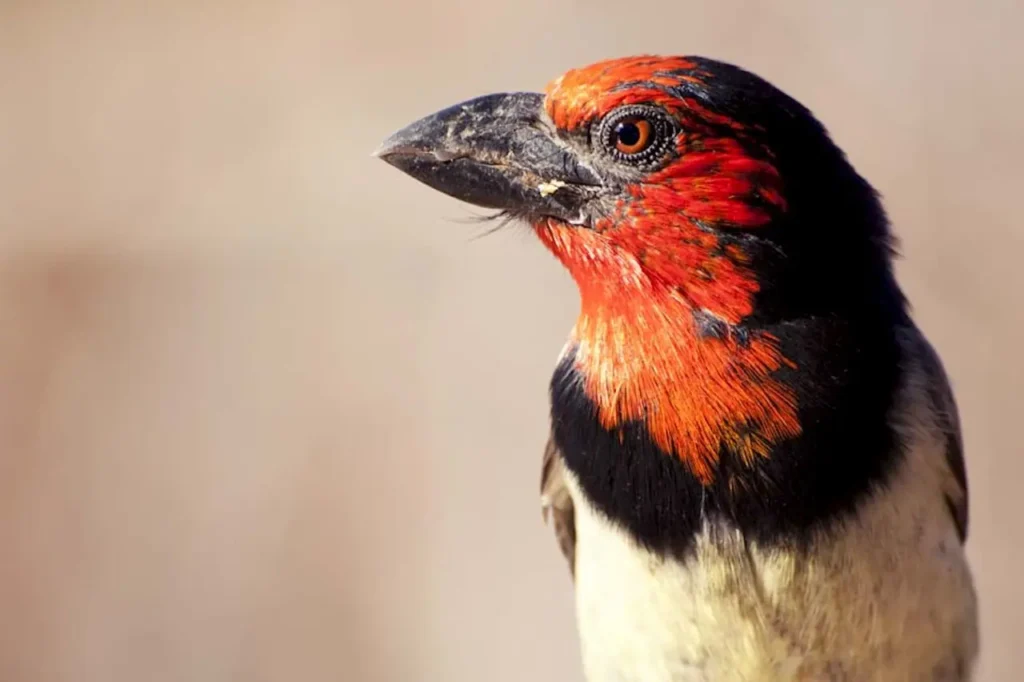
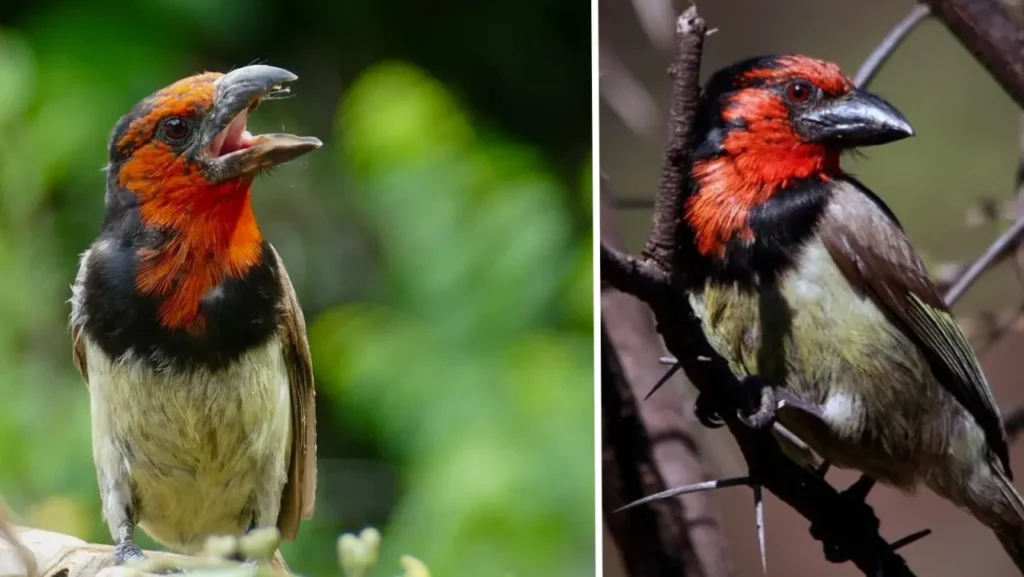
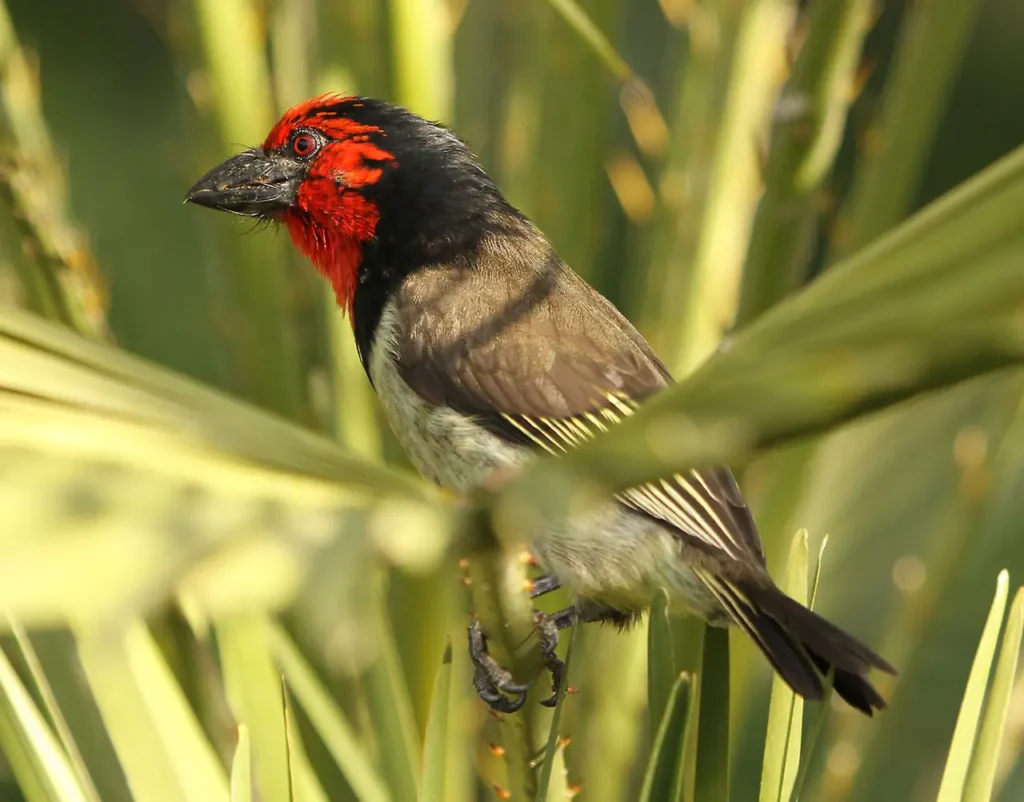
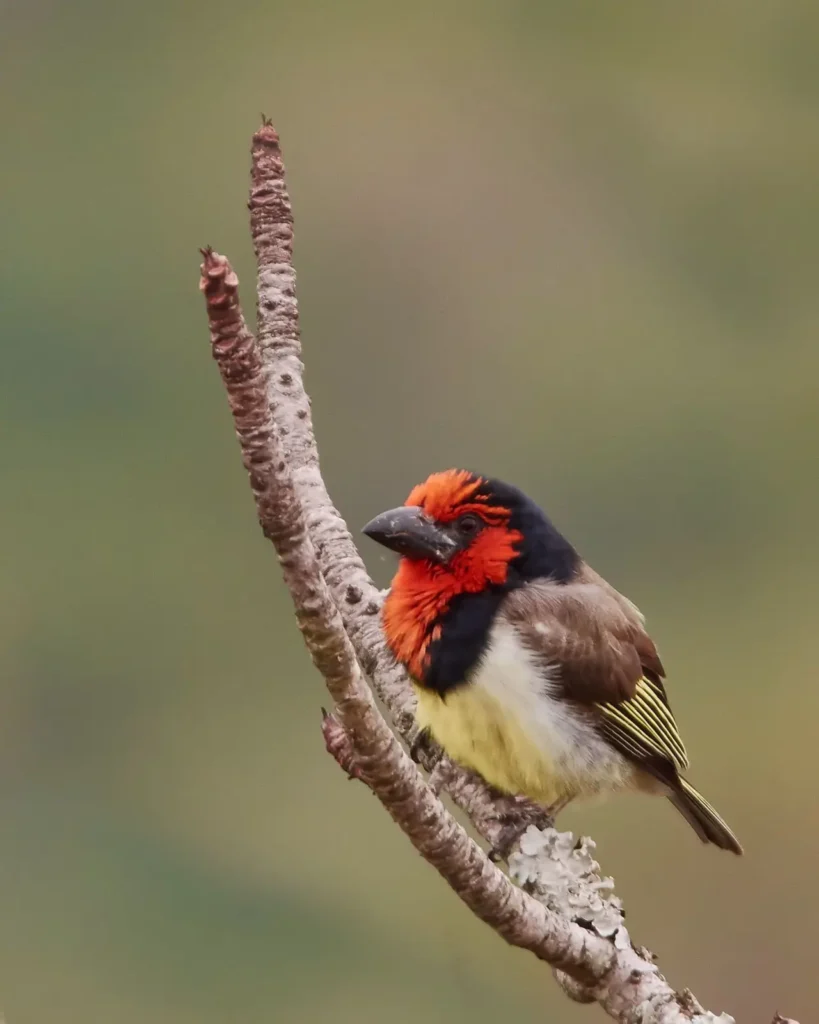
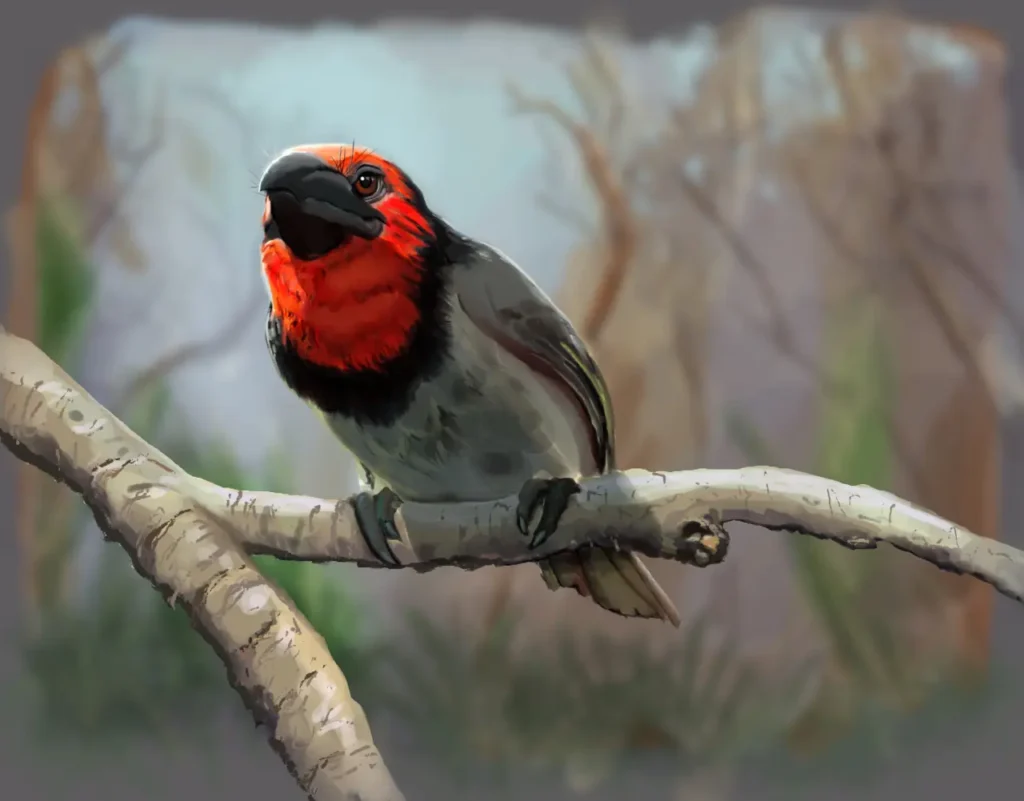
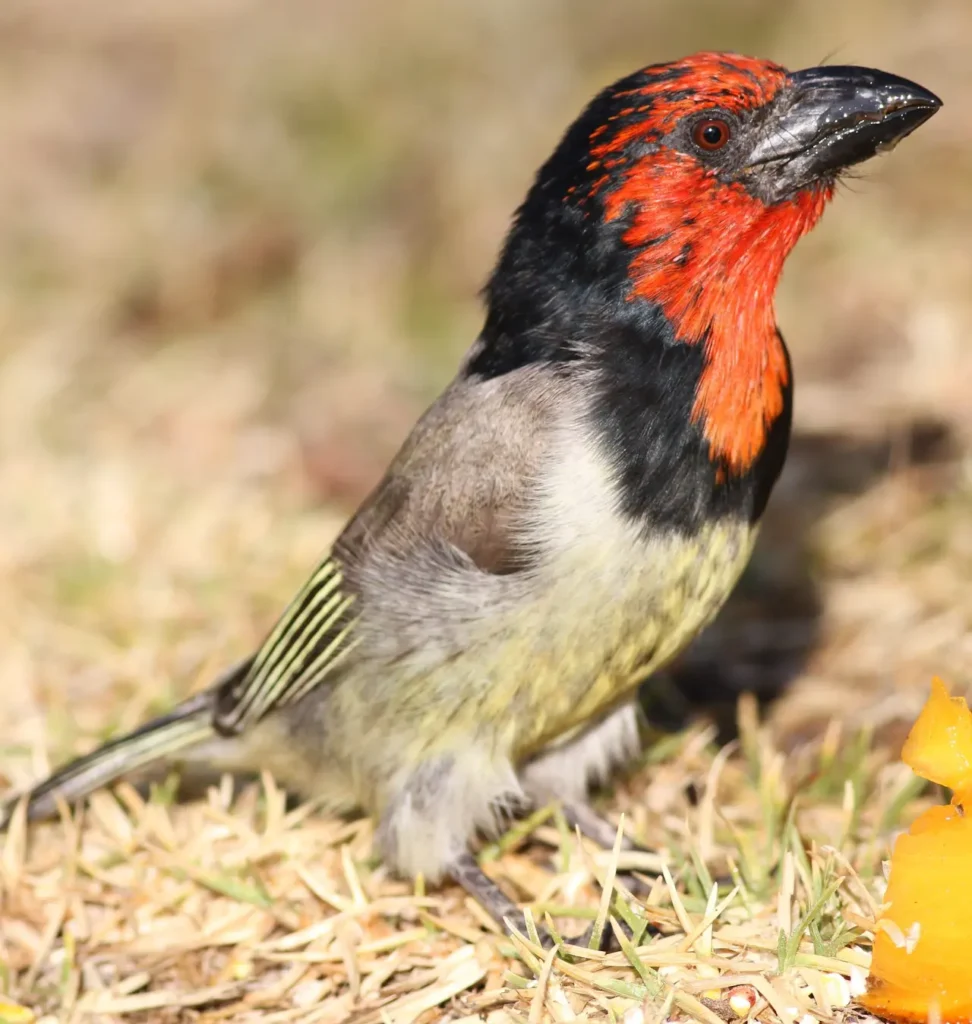
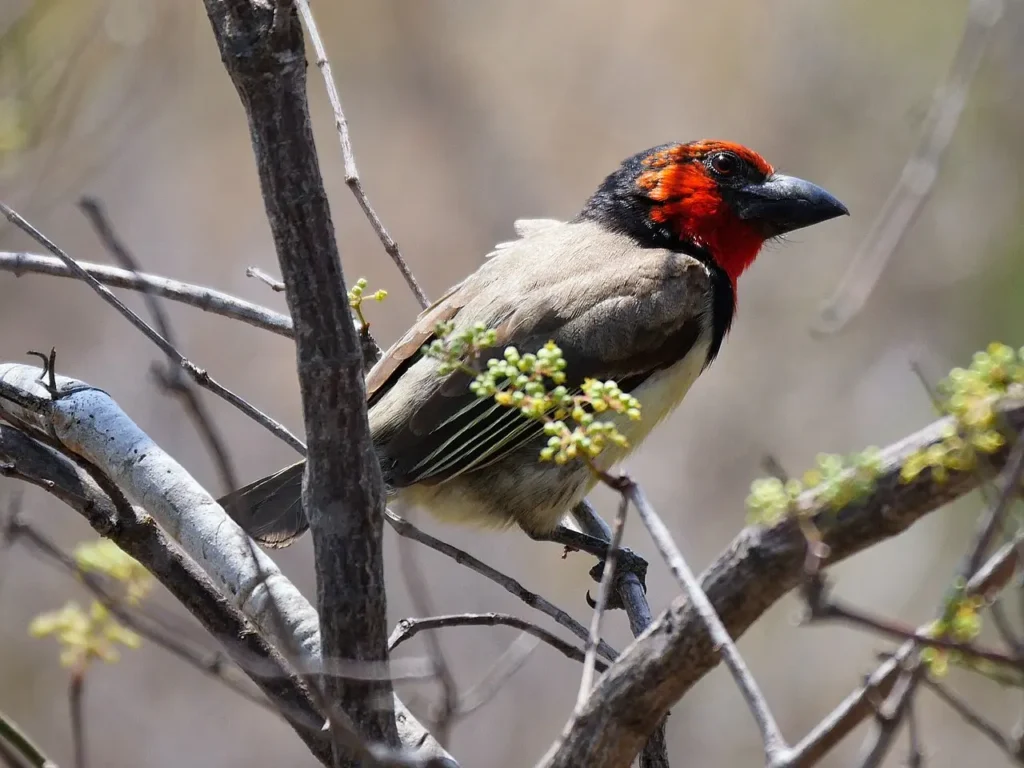
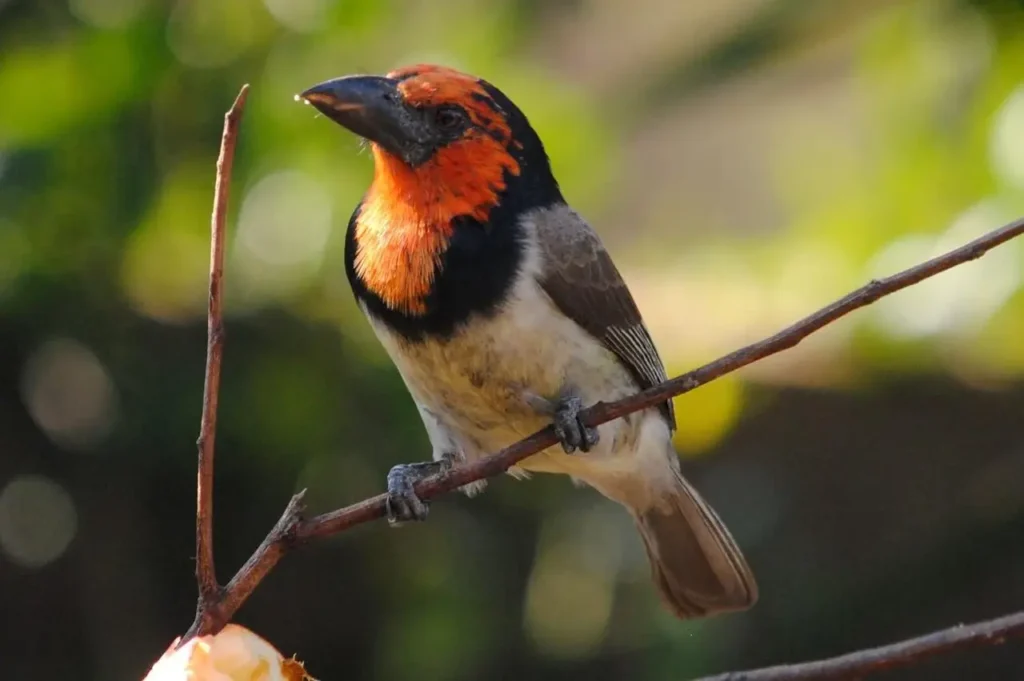
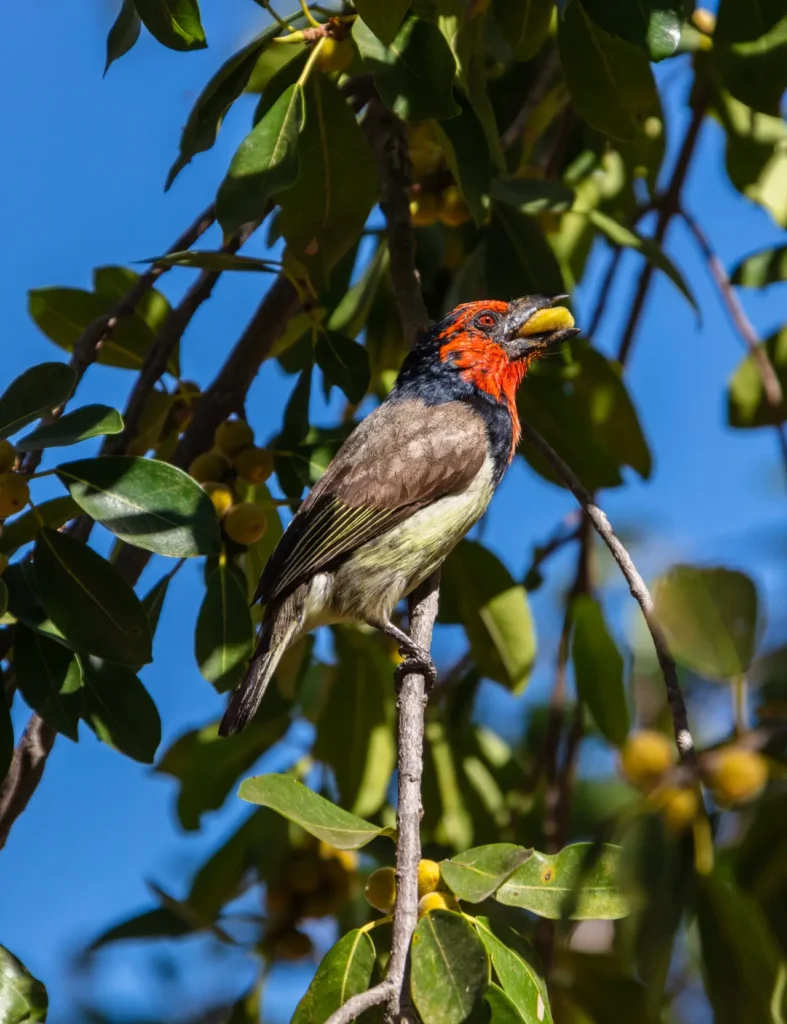
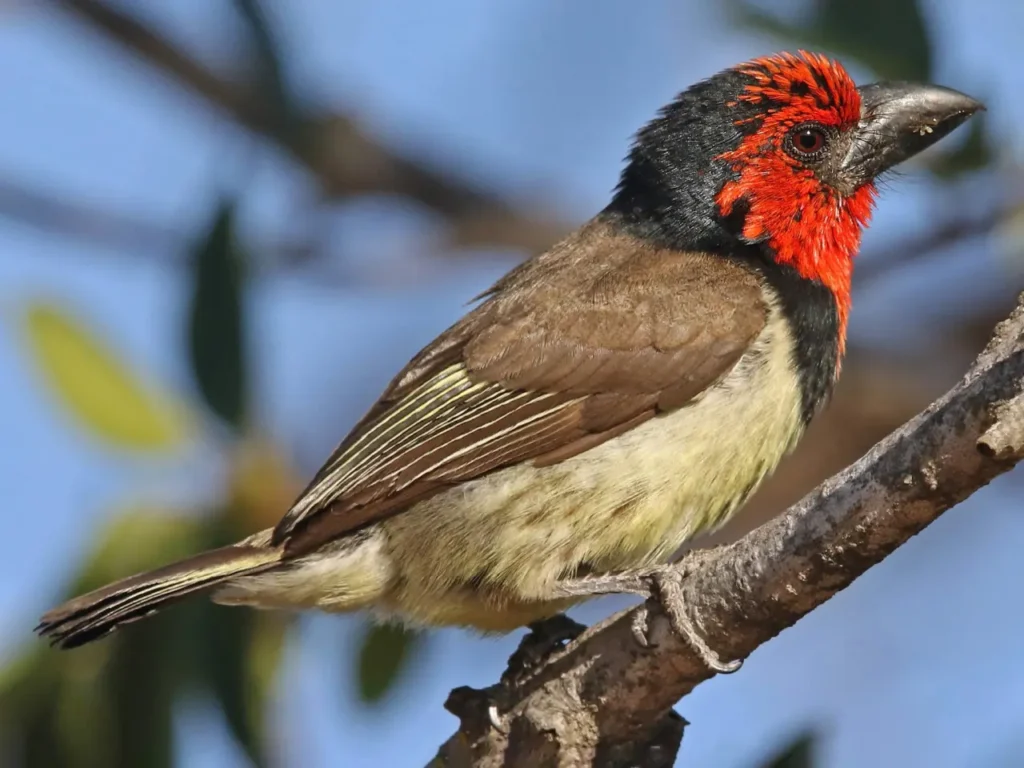
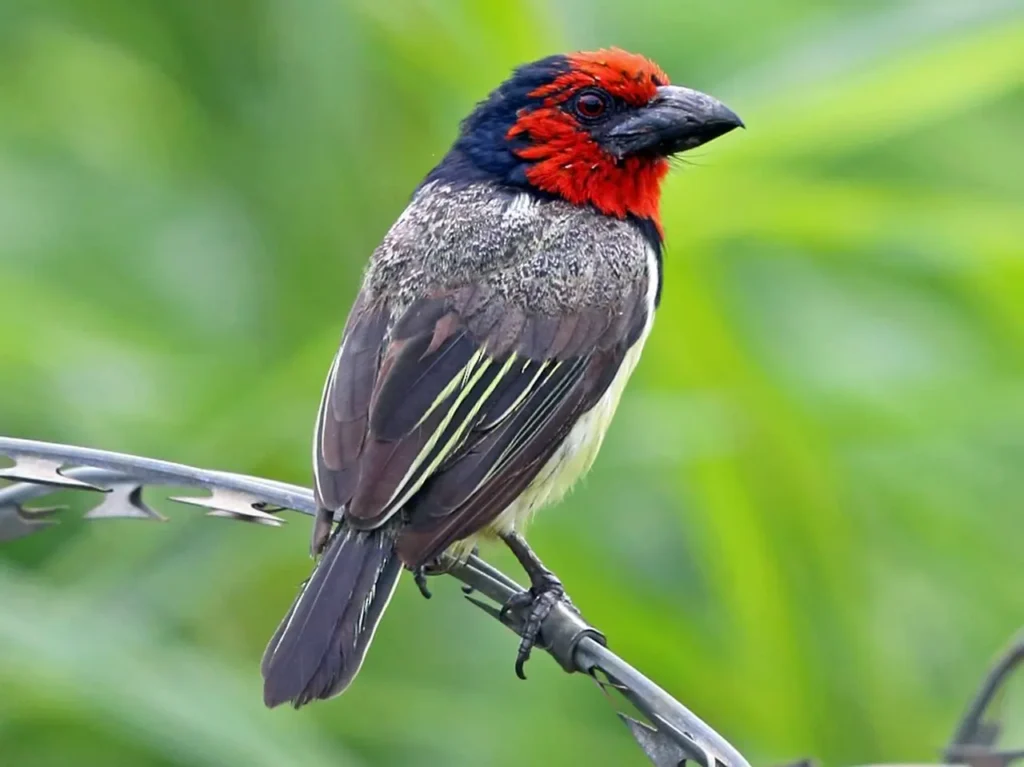
Appearance and Plumage
The Black-collared Barbet, scientifically known as Lybius torquatus, is a medium-sized bird characterized by its striking coloration. It has a stout, compact body with a short neck and a large, strong bill. The most notable feature of the Black-collared Barbet is its black collar that encircles the neck, contrasting with its vibrant red face and forehead. The rest of its plumage is predominantly green, providing excellent camouflage amidst the foliage of its forest habitat.
Habitat and Distribution
Black-collared Barbets are native to the tropical and subtropical regions of sub-Saharan Africa. They inhabit various types of forests, including rainforests, gallery forests, and woodland habitats. These birds are often found in the canopy or mid-levels of trees, where they forage for fruits, insects, and small vertebrates. The Black-collared Barbet’s distribution spans across countries such as Kenya, Tanzania, Uganda, Rwanda, Democratic Republic of Congo, and others.
Behavior and Vocalizations
Black-collared Barbets are primarily frugivorous, feeding on a variety of fruits, berries, and figs. They also consume insects, small reptiles, and occasionally take nectar from flowers. They have a unique vocal repertoire, producing a range of calls that include a series of loud, repetitive notes. Their melodious songs serve multiple purposes, including territorial defense, courtship displays, and communication with their flock members.
Breeding and Family Life
Black-collared Barbets form monogamous pairs and defend their territories within their forest habitats. They excavate nest cavities in dead or decaying trees, where the female lays her eggs. Both parents take turns incubating the eggs and caring for the hatchlings. Once the young birds fledge, they remain with their parents for some time, learning essential skills and establishing their own territories.
Conservation and Protection
The Black-collared Barbet faces various threats to its survival, primarily due to habitat loss and degradation caused by deforestation and land conversion. Additionally, illegal trapping for the pet trade poses a significant risk to their populations. Conservation efforts aim to protect the species by preserving their forest habitats, raising awareness about their ecological importance, and combating illegal trade.
Ecological Significance
Black-collared Barbets play an essential role in the ecosystems they inhabit. They assist in seed dispersal by consuming fruits and excreting seeds in different locations, contributing to forest regeneration and biodiversity. Their presence also attracts other bird species, as their nest cavities are often reused by other cavity-nesting birds after they have abandoned them.
Appreciating Nature’s Treasures
The Black-collared Barbet serves as a reminder of the remarkable beauty and diversity found in tropical forests. Its vibrant plumage, melodious calls, and ecological significance make it a true treasure of the avian world. By preserving the habitats where these birds thrive, we ensure the continued survival of this species and the intricate ecosystems they contribute to.
The Black-collared Barbet’s captivating appearance, enchanting vocalizations, and ecological importance make it a bird worth celebrating and protecting. By valuing and conserving their forest habitats, we not only safeguard the Black-collared Barbet but also preserve the delicate balance of biodiversity in tropical regions. Let us appreciate the beauty and significance of these vibrant songbirds and work together to ensure their continued existence for future generations to marvel at their splendor.
